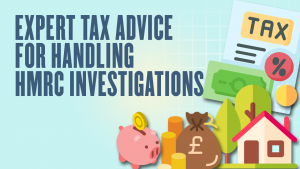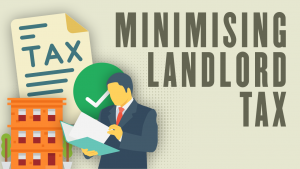Landlords have once again drawn the attention of HMRC. The government department is utilizing data from rent deposit schemes to evaluate the expected tax that should be reported on tax returns and identify landlords who are not declaring their rental income.
HMRC is actively sending correspondence to landlords, commonly known as “nudge letters,” requesting clarification on their tax status. This type of investigation represents a significant allocation of HMRC’s resources. The department has access to a wide range of data and has implemented similar campaigns targeting landlords through Land Registry Data. This approach enables them to identify individuals who currently or previously owned multiple properties, allowing for assessments on whether taxes, including capital gains tax, should have been declared.
How does HMRC use rent deposit scheme data?
Since 2007, landlords in the UK have been legally obligated to register tenants’ deposits with a government-approved scheme.
Typically, these deposits amount to five weeks’ rent (for annual rents below £50,000) or up to six weeks’ rent for higher amounts. HMRC has the ability to utilize this data to estimate the annual rental income reported by cross-referencing it with the information provided in tax submissions. In cases where an individual has registered a deposit but has not submitted a tax return, this discrepancy will also be highlighted. If any irregularities are detected, HMRC is likely to initiate contact with the individual to request additional information.
Expert Tax Advice for Handling HMRC Investigations

When tax has been withheld or inaccurately reported, voluntarily disclosing this information to HMRC can lead to more favorable penalties, particularly when landlords cooperate with the authorities.
Given the recent changes and reductions in tax reliefs for landlords, it’s not uncommon for many to submit incorrect self-assessment tax returns. Some landlords, including accidental ones, may not even be fully aware of their tax obligations and have neglected to declare their rental income.
We strongly advise all landlords to review their gross rents and ensure that the correct amount of tax has been declared. If you receive a letter from HMRC, it’s crucial to respond within the given time frame and consider seeking professional advice if you’re unsure how to proceed.
Ignoring the letter may result in HMRC initiating a formal inquiry, and if they suspect deliberate tax avoidance, the penalties can be severe. Voluntarily disclosing the information to HMRC ahead of time usually results in more lenient treatment from the authorities.
Minimising landlord tax

Given the recent tax changes affecting landlords and the resulting increased tax burden, it has become crucial to focus on minimizing tax obligations. HMRC’s intensified scrutiny of landlord tax further emphasizes the importance of ensuring the accuracy of all tax submissions.
Considering the current higher interest rates and reduced tax allowances, it is wise for landlords to assess the efficiency of their asset holdings. This involves evaluating whether a limited company structure could be more advantageous than personal property ownership. While it was previously perceived as tax-inefficient, many landlords now find that a company structure aligns better with their circumstances due to the aforementioned changes.
In addition to the company structure, there are various alternative ownership arrangements available to landlords that may offer greater tax efficiency. These options encompass leveraging spousal allowances and their potentially lower tax rates, exploring family investment companies, and considering trust structures. Conducting a tax review with a professional advisor would enable landlords to carefully evaluate these alternatives and make informed decisions.
Takeaway:
When a landlord receives a letter from HMRC, the utmost priority should be to respond within the specified timeframe. It is always wise to seek guidance from a property tax specialist before replying, even if it is just to confirm that no tax payment is required.
Given the current environment of rising interest rates and diminishing tax reliefs, it is sensible for all landlords to assess their tax position and evaluate whether alternative property holding structures now offer greater tax efficiency. Seeking reliable professional advice not only mitigates the risk of an HMRC investigation but also helps minimize a landlord’s tax liability to the fullest extent possible.
